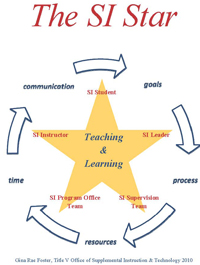Lehman 101: Transfer
FAQ’s Unraveled
FAQ1: My advisor told
me I need to take two LEH courses, but I keep getting a stop every time I try
to enroll. What’s the problem?
The first thing to know about LEH courses is that in order
to take them you need to have 60 credits or more and your major must be declared.
If you are an incoming transfer student with 60 credits but all of your credits
have not completely transferred over to Lehman College, you must wait until
they are. Make sure to have all updated transcripts submitted in order for your
credits to be up to date.
FAQ2: I have 60
credits and declared my major, but I’m not sure which LEH course to take. How
do I know which course is the correct one for me?
The reason LEH courses a declaration of major is due to the
fact that certain majors will conflict with one of the 5 LEH courses. The 5 courses
you choose from are LEH 351 through LEH 355. Also, you cannot take 2 classes
from the same section. You can find out which LEH sections work for you by
looking at the course description. In the example below, the LEH 351 section excludes
the majors written in NOTE 2:
FAQ3: I’m not sure if
I still need to take this class, and I can’t understand what my advisor wrote
down, can you help me?
If you already visited your advisor, and are still confused
or uncertain with what classes you need, you can always check your transfer
credit report on CUNY first. The report will help you know what courses
transferred over and will give you its Lehman equivalent. If your Major is
already declared, you can find the Major requirements by visiting the
departments website here
or by visiting their office in person. Below is an image of where your Transfer
Credit Report will be displayed on CUNY first.
FAQ4: How can I place
myself on a wait list if the class I want is closed?
Step one: Search for your class, but before hitting the enter key,
make sure to uncheck the “Show Open Classes Only” box.
Step two: Once you have selected a class, make sure you can wait list
by searching for a yellow triangle as seen below, this indicates that the class
can be wait listed. If instead of a yellow triangle there is a blue square, the
class cannot be wait listed.
Step three: Once you select the class, make sure to check the box “Wait
list if class is full” in order to proceed (example above). Afterwards, just
enroll as you normally would and you’ll be placed on the wait list.
A number will be assigned to you, and in the event that “x”
number of people drop the course you will be placed in the class. Be sure to
keep checking CUNYfirst. A wait listed course is not guaranteed and you will
not be notified if you do get placed in.
FAQ5: Where do I get
my ID, and what places require me to use it?
Once you have successfully enrolled, you can acquire your
I.D. by visiting Shuster Hall room 079. You must use your Lehman I.D. to enter
the Leonard Leif library, the Apex building, and the IT center lab.
You can find the I.D. schedule here:
FAQ6: What’s the
difference between Common Advising and Academic Advising?
Common Advising refers to all the academic departments, so
this means the advisors for each particular major/minor. Now here’s where it gets confusing: Academic
Advising is what you receive to learn about Lehman’s general education
requirements, not your major or minor requirements. For example, an academic
advisor will speak to you about LEH courses and the PATHWAYS CUNY curriculum.
Click here to know more about
general-education requirements.
Transfer students should meet with both advisors in order to
be on track with all necessary courses. This is the link to set
up an appointment with your academic advisor if you have not done so already. You
can meet with your major or minor advisor by following the specific department
schedule for advising.




















